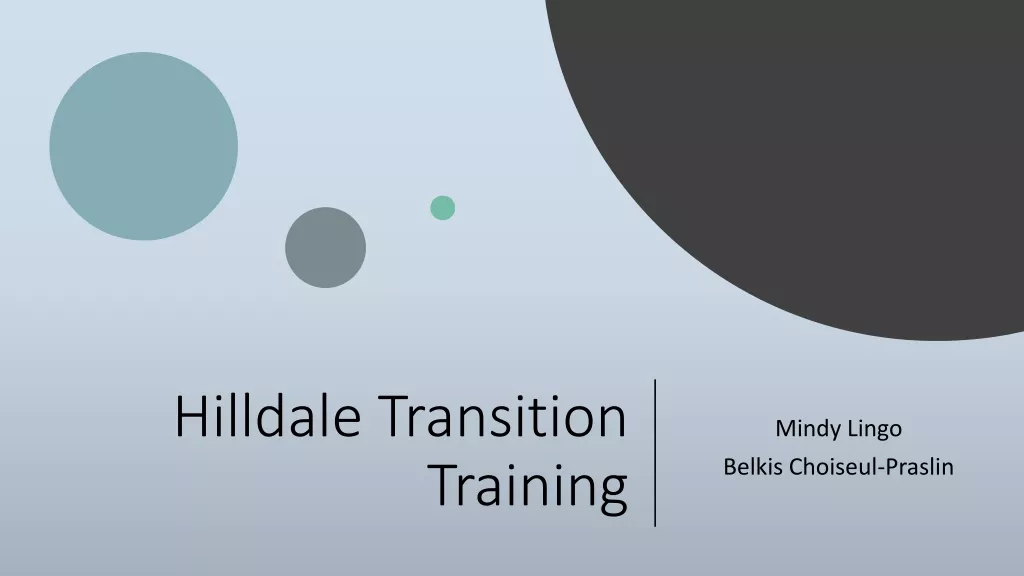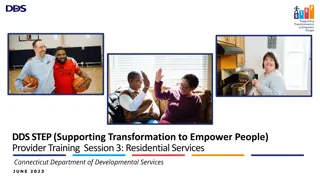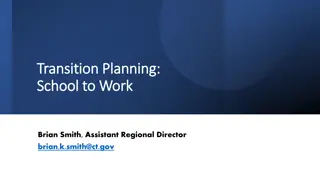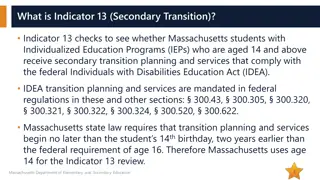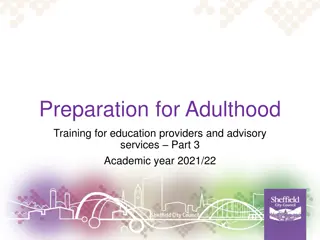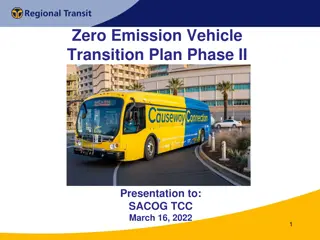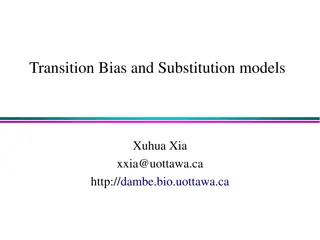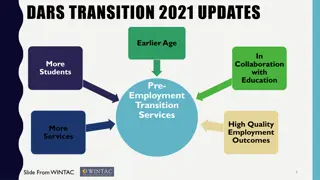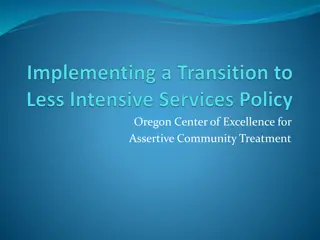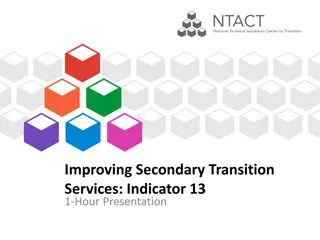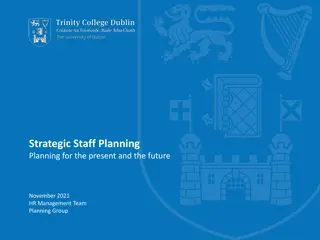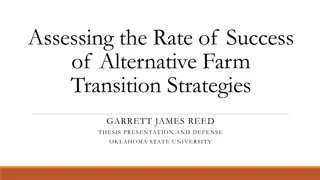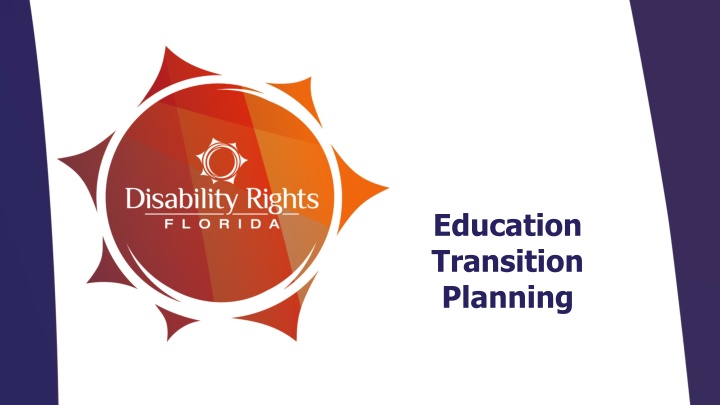
IEP Team Structure and Responsibilities
Learn about the Individualized Education Program (IEP), the team members involved in creating and revising it, and the process of ensuring students with disabilities receive appropriate education services in compliance with the Individuals with Disabilities Education Act (IDEA).
Download Presentation

Please find below an Image/Link to download the presentation.
The content on the website is provided AS IS for your information and personal use only. It may not be sold, licensed, or shared on other websites without obtaining consent from the author. If you encounter any issues during the download, it is possible that the publisher has removed the file from their server.
You are allowed to download the files provided on this website for personal or commercial use, subject to the condition that they are used lawfully. All files are the property of their respective owners.
The content on the website is provided AS IS for your information and personal use only. It may not be sold, licensed, or shared on other websites without obtaining consent from the author.
E N D
Presentation Transcript
Education Transition Planning
Disability Rights Florida Funding, responsibility, and authority under nine federal programs to protect the rights of Floridians with disabilities. A not-for-profit corporation since 1987. Offices in Tallahassee, Tampa, Fort Lauderdale, and Gainesville. Satellite offices in several other communities.
Our Mission To advance the quality of life, dignity, equality, self-determination, and freedom of choice of persons with disabilities through collaboration, education, advocacy, as well as legal and legislative strategies.
Objectives: Learn about: IEP participation Section 504 Plans Transition IEPs Individual Plans for Employment Post High School Options This Photo by Unknown Author is licensed under CC BY-NC
School Based Transition Planning Different Types of Transition Plans Individualized Education Program (or Plan) IEP 504 Plan Transition Individualized Education Program (TIEP) Individualized Plan for Employment (IPE)
IEP A legal plan that outlines the supports and services a student with a disability will receive to provide a free and appropriate public education (FAPE). The Individuals with Disabilities Education Act (IDEA) requires that students with disabilities who are eligible for special education services have a team that meets at least annually to discuss revisions to the students IEP. An interim review may be requested if requested by the parent or the school district. Florida Rule 6A-6.03028 specifies the requirements for the IEP team members.
IEP Team Members At least one general education teacher, if the student is or may be participating in the regular education environment. At least one special education teacher One representative of the school district s local educational agency (LEA) An individual that can interpret the educational implications of evaluation results. Other individuals invited by the parent or the school district who may have knowledge of the student.
IEP Team Member Excusal An IEP team member may be excused if: The parent and the school team members agree, in writing, that the team members attendance is not necessary because their area of curriculum or related services is not being modified or discussed at the meeting. The team member may also be excused if the parent and the school district consent to the excusal, in writing, and the area of curriculum or related service will be discussed and the team member provides written input to the parent and the school district, in writing, written input prior to the meeting.
What is Child Find? Students between the ages of 3-22 suspected of having a disability must be evaluated by the appropriate professionals and are determined by a multidisciplinary team to be eligible for an IEP,
IDEA Federal Disability Categories Autism Spectrum Disorder (ASD) Orthopedic Impairment Deaf-Blindness Other Health Impairment Deafness Specific Learning Disabilities Emotional Disturbance Speech and Language Impairment Hearing Impairment Traumatic Brain Injury Intellectual Disabilities Visual Impairment, including Blindness Multiple Disabilities
IEPs Include ADA Coverage Students with an IEP are covered by the Americans with Disabilities Act (ADA), however during the person s school years, the IEP has more specific requirements. If a student has an IEP then they are covered by Section 504 as well. The IEP process guarantees steps will be take to give the child equal access to an education.
What are Section 504 Plans? Section 504 of the Rehabilitation Act are plans for students with disabilities who need accommodations, but do not need specially designed instruction. A 504 plan: specifies steps to be taken to give the student an equal chance to be educated. Describes the education and accommodations needed by the student to make that education possible. This plan should be handled with care and should be thoroughly carried out with as much fidelity as an IEP. It has the strength of federal law behind it.
Life Activites Covered by the Rehabilitation Act Walking Seeing Hearing Speaking Breathing Learning Working Caring for oneself Performing manual tasks
Section 504 Plan Team Members The members of a 504 plan team are not as prescribed as an IEP. The team members may be similar, however. The student or anyone responsible for that person can request the participation of experts.
Transition IEPs By age 16, or earlier, IDEA requires a student s IEP team to address transition services the student needs to achieve their post-school goals. Florida law requires transition planning to be at age 12 or 7th grade, whichever comes first. Florida law also requires the TIEP be implemented by the first day of high school. Students with a 504 Plan are not legally required to have a transition plan, however they are entitled to transition planning as part of their 504 Plan.
Individualized Plan for Employment A student who has an IEP or 504 Plan is likely to leave school with an Individualized Plan for Employment (IPE). The IPE is the blueprint to successful employment when using the services of the Florida Division of Vocational Rehabilitation (DVR) or the Florida Division of Blind Services (DBS). Without an IPE students cannot access the services of either DVR or DBS which helps them reach their employment goals in adult life.
IEP and 504 Plans For a student with a disability, the earlier accommodations and services can begin the better. IEPs and 504 Plans should include: Educational needs related to their disability Services expected to be provided and when they will start Who will provide the services and who will pay for them What measurable goals will be worked on and by whom What modifications and supports will be provided and in what setting What technology and other assistance will the student need
What Should the TIEP Include? (1 of 2) The TIEP should include: Need for instruction in self-determination Self-determination skills are those skills that a student needs to manage their own life. These needed skills should be identified early according to Florida Rule 6A- 603028
What Should the TIEP Include? (2 of 2) The TIEP should include: the following based on the student s needs: vocational training and living skills High school program desired post-school outcome Job training Post-school adult living Functional Vocational assessments Services or assistive technology device and who will provide them
Transfer of Rights At least a year prior to turning 18, the school district must inform you and your parent or guardian that at 18 your educational rights will be transferred to you as an adult. Once you are 18 you are considered an adult and you have the right to enter contracts and make your own decisions. Once these rights have transferred to you at 18 you should read anything before you sign it carefully and make sure you understand it before signing it. Ask a trusted friend, family member or advocate if you need help understanding what you are being asked to agree to.
IPE with VR The IPE states the student s employment goal, and the services VR will provide in order to achieve it. The employment goal should be specific enough to be clear and the services to help you reach your goal should be just as clear. Examples of appropriate and inappropriate goals: Appropriate Inappropriate Nurses' aide Health care Comptroller Business Security guard law enforcement
What Should The IPE Include? Detailed services needed to reach the goal Further education needed Transportation Mental Health therapy Medical Treatment Technology Anything else necessary for the person to succeed
Purpose of Each Plan IEP includes detailed strategies for achieving the best possible adult life. The TIEP has the same purpose as the IEP however the TIEP looks ahead to the needs, changes and possibilities of adulthood. IPE focuses on a rehabilitation/work plan on preparing for work as an adult. An independent living l=plan builds self-sufficiency and the self-confidence needed to successfully enter the adult world.
Students Should Be Part of The TIEP Starting at 12, or sooner if possible, a student must be invited to be part of the TIEP. If the student does not attend their TIEP meeting to identify their transition services needs or consider post-secondary and career goals, the school district shall take other steps to ensure that the students' preferences and interests are considered.
Agencies That Are Helpful at IEPs Developmental Service Alcohol, drug abuse and mental health Community Colleges DVR VR Deaf Services Children s Medical Services Children and Families Services Community Mental Health Services Centers for Independent Living Social Security Programs Speech-Language Programs Any other agency with services or programs that might contribute to the student s successful transition to adult life.
Additional TIEP Members The TIEP team must include the same required members as an IEP, however additional members may also be included. The school district or parent or guardian may also invite people from such places as: higher education experts prospective adult living setting Prospective employers or employment training sites, job coaches, VR counselor or customized employment provider.
The IPE Team The IPE is written by the student and their VR counselor. It is helpful is the VR counselor has been involved with the student from early on. Other involved family members or IEP or 504 plan team member can also contribute to the plan, however it is the student and the VR counselor who must agree on the final plan.
Preparing For Your IEP Meeting If the purpose of the meeting is to consider your postsecondary goals and transition services, you should be invited to the meeting. These meetings are so important to your future, the more you can be part of them, the better the team will work together. Communication with your team is important. The more you team knows about your strengths, desired post-school goals and where you need help, the more they can help you succeed.
Person Centered Planning (PCP) The IEP team is there to help you plan for your successful transition into adulthood. Self-determination is key to the PCP approach. Using the PCP approach the IEP meeting will focus on your strengths, preferences, interests and needs. The IEP team should work collaboratively to identify your priorities and assist you in attaining your self0determined quality of life.
Before Your IEP Meeting Get a copy of your previous IEP and make sure you understand it. Think about your current goals and write down what you want changed or continued. Think about the coming year. What classes or training do you want? Invite someone you trust to be at the meeting with you to encourage and support you. Be well rested and eat a good meal before the meeting.
During Your IEP Meeting Discuss with your IEP team how your disability affects your goals and plans. Be able to talk about your strengths and weaknesses. Focus on your abilities and possibilities but be realistic. Know your rights. If you disagree with your team use your dispute resolution options to resolve your differences.
IEP Team Resolution Options Some things you can ask for if you disagree are: A facilitated IEP. This is where someone who is impartial sit in the meeting and helps the team come to a resolution when you did not agree. Mediation. This also is an outside person training to help people resolve their differences. This is a confidential, legally binding process. File a state complaint. If the school has broken a federal or state law you can ask the Florida Department of Education to hold the school district responsible and order them to correct the issues. File a due process complaint. This can be a long and expensive process, but you can ask an Administrative Law Judge to decide if the school has broken the law.
Tips For a Successful IEP Meeting (1 of 2) Know your rights. Bring copies of IDEA and Florida Rules to your meeting. Know and invite the agencies that are ready to help you. If you invite them and they say they can t help, ask who can. Be flexible in finding the right solution to a problem. Make your requests in writing and ask for a response in writing. If it is not in writing, you can t prove it happened. Use the chain of command to help resolve your issue in your favor. If you get a no, ask who their boss is and make your request to them. Continue up the chain of command until you are satisfied.
Tips For a Successful IEP Meeting (2 of 2) Make certain your goals are measurable. This is the only way you know if you are making progress. Ask for an assessment to show the need for services. If you disagree with the assessment, you can ask for an independent evaluation at public expense. Get a copy of all assessments. Bring someone with you to the meeting to support you. If you are denied services or run into other problems, you obtain information and referral and possibly legal representation from Disability Rights Florida or your local legal aid program.
How Long Can You Stay In School? Students with disabilities can stay in school until they receive a standard diploma or until they turn 22. Some districts it is the day you turn 22, the semester you turn 22 or the end of the school year in which you turn 22. Check your District s Special Programs and Procedures document: https://beessgsw.org/#/spp/institution/public/
The Deferral Process First, a student must have an IEP that prescribes special education, transition planning, transition services, or related services through 21. This means that, because of the disability, a student must need continued education and services. Second, a student must be enrolled in one of several specific educational programs. These programs include accelerated college credit, industry certification courses that lead to college credit, a collegiate high school, courses necessary for a Scholar designation, or structured work-study, internship or pre- apprenticeship programs. School districts offer a variety of extended transition programs that meet these requirements. By May 15th of your senior year in high school, you must tell your IEP team that you plan to defer your diploma and plan to remain in school after your senior year.
After High School (1 of 2) IDEA does not apply to postsecondary education. Once you are in postsecondary education the laws that govern your accommodations and equal access are Section 504 of the Rehabilitation Act and the Americans with Disabilities Act. Postsecondary education will look different than what you may be used to in the Kindergarten to 12th grade system. There will not be IEP meetings or plans in place to spell out goals and services. In postsecondary education you are more likely to work with a disability office to make sure you get accommodations, such as reduced course loads, assistive technology, extended time on tests and sign-language interpreters, if needed.
After High School (2 of 2) To receive accommodations in a postsecondary setting you need to talk with the disability office and provide documents that indicate what accommodations are needed. This will not automatically happen. You need to contact the disability office and ask for their help. The disability office can help with the accommodation needed however the postsecondary institution is not required to lower its academic standards or accept excessive financial burdens to provide those accommodations. For more opportunities for students with disabilities to participate in 18-to- 22-year-old programs visit the Project 10 website http://project10.info/PostsecondaryEducation.php
Keeping My Records Private (1 of 2) The Family Educational Rights and Privacy Act (FERPA) is the federal law that protects the privacy of student educational records. FERPA gives parents and adult students the rights to: Inspect and Review student s education records Correct records you believe to be inaccurate or misleading
Keeping My Records Private (2 of 2) Keep records private unless: There is a school official with a legitimate education interest; Student is transferring to another school; Specified Officials for audit or evaluation purposes; Appropriate parties for financial aid; Organizations conducting certain studies for or on behalf of the school; Accrediting organizations; To comply with a judicial order or lawfully issued subpoena; Appropriate officials in cases of health and safety emergencies; and State and local authorities, within a juvenile justice system, pursuant to specific state law.
What Schools Can Disclose Directory Information such as the student s name, address, telephone number, date and place of birth, honors and awards and dates of school attendance. The school must tell parents and students about the directory information and give a reasonable amount of time to request the school not to disclose such information. Schools must give parents and eligible students information about their rights under FERPA once a year.
Disability Rights Florida (800) 342-0823 TDD (800) 346-4127 FAX (850) 488-8640 www.DisabilityRightsFlorida.org Follow Disability Rights Florida on Facebook Thank you



